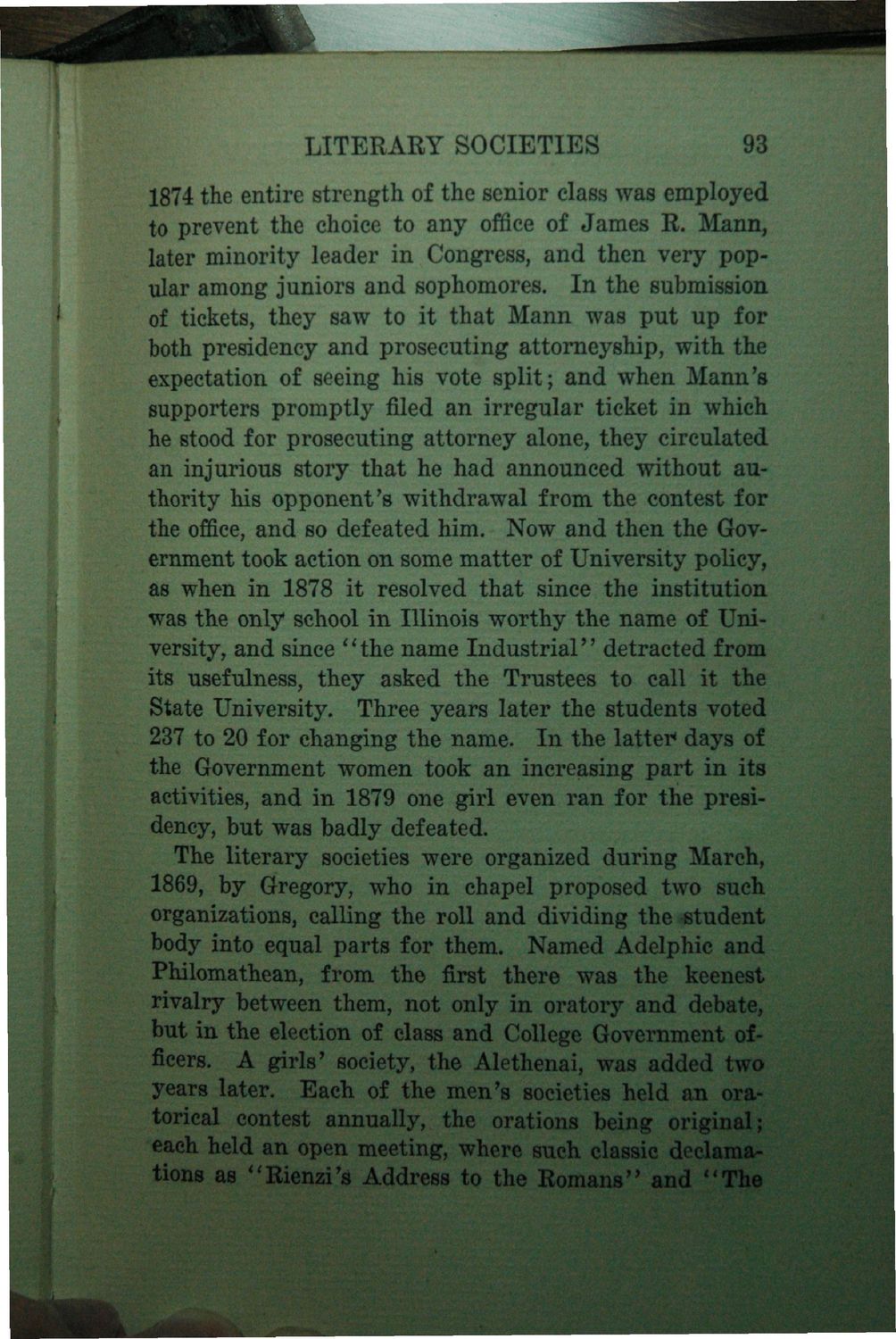| |
| |
Caption: Book - History of the University (Nevins)
This is a reduced-resolution page image for fast online browsing.

EXTRACTED TEXT FROM PAGE:
LITERARY SOCIETIES 93 1874 the entire strength of the senior class was employed to prevent the choice to any office of James R. Mann, later minority leader in Congress, and then very popular among juniors and sophomores. In the submission of tickets, they saw to it that Mann was put up for both presidency and prosecuting attorneyship, with the expectation of seeing his vote split; and when Mann's supporters promptly filed an irregular ticket in which he stood for prosecuting attorney alone, they circulated an injurious story that he had announced without authority his opponent's withdrawal from the contest for the office, and so defeated him. Now and then the Government took action on some matter of University policy, as when in 1878 it resolved that since the institution was the only school in Illinois worthy the name of University, and since "the name Industrial" detracted from its usefulness, they asked the Trustees to call it the State University. Three years later the students voted 237 to 20 for changing the name. In the latter* days of the Government women took an increasing part in its activities, and in 1879 one girl even ran for the presidency, but was badly defeated. The literary societies were organized during March, 1869, by Gregory, who in chapel proposed two such organizations, calling the roll and dividing the*tudent body into equal parts for them. Named Adelphic and Philomathean, from the first there was the keenest rivalry between them, not only in oratory and debate, but in the election of class and College Government officers. A girls' society, the Alethenai, was added two years later. Each of the men's societies held an oratorical contest annually, the orations being original; each held an open meeting, where such classic declamations as "Biena'6 Address to the Romans'' and '-'The
| |